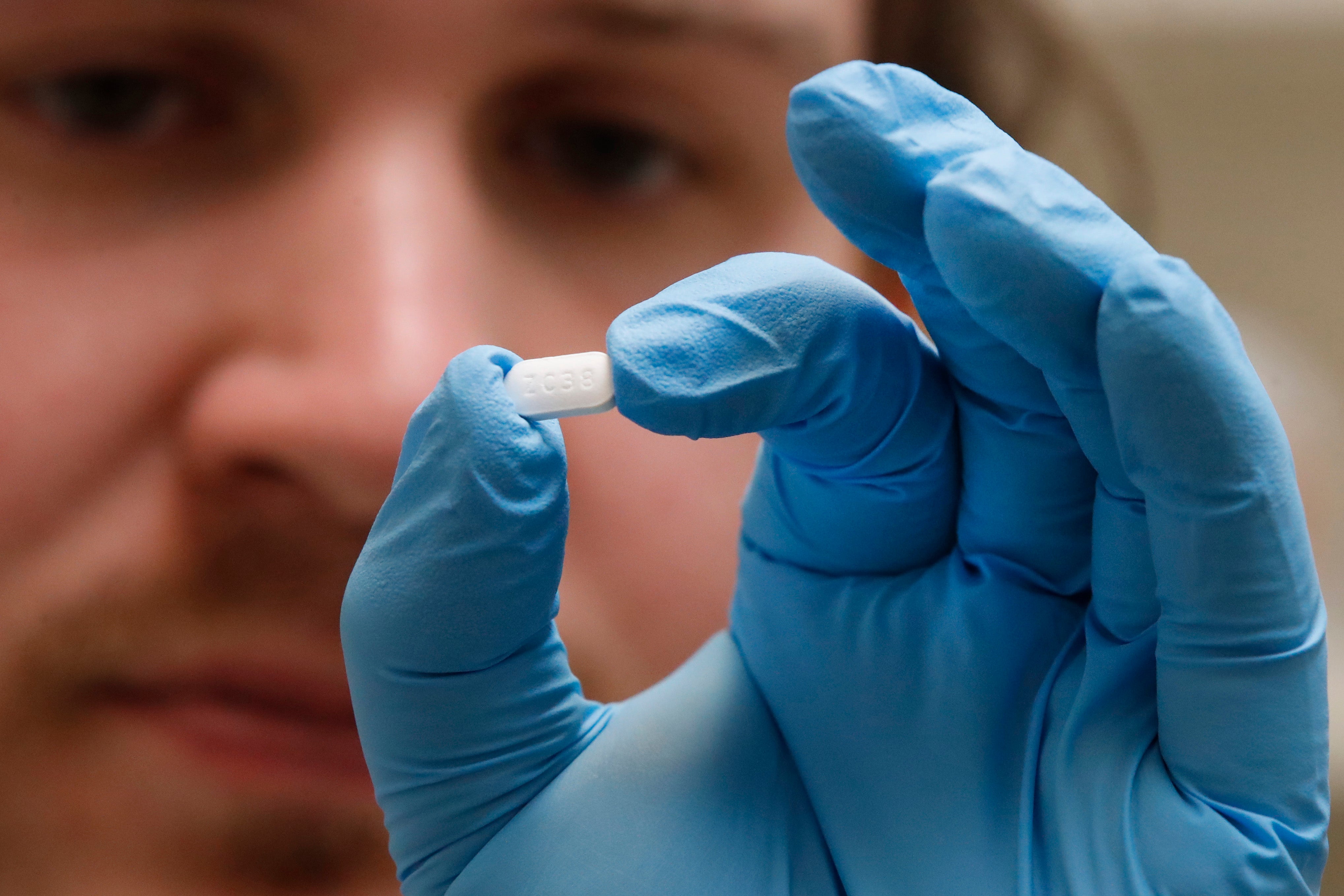Hyped antimalarial drug shows no evidence of preventing COVID-19
INDIANAPOLIS (WISH) – The antimalarial drug used to treat coronaviruses MERS and SARS was shown to be ineffective in preventing COVID-19 after exposure to the disease, according to a new study published in The New England Journal of Medicine.
Researchers assessed 821 asymptomatic participants who were exposed to COVID-19 either at work or at home. They were considered as having a moderate risk of infection. Half of the participants were given hydroxychloroquine (HCQ) while the other half were given a placebo drug. Neither the patient nor the doctor knew what treatment the patient was administered.
The patients were followed for 14 days. At the end of the trial period, 49 out of the 414 patients administered HCQ as a preventative measure against infection ended up with coronavirus while 58 of the 407 patients receiving the placebo contracted the virus. These results showed a non-significant difference between treatment with HCQ versus a placebo.
Hydroxychloroquine (HCQ) has made headlines for months being touted as a way to prevent or treat the coronavirus for theoretical reasons. In a study published in Cell Discovery, the drug was shown to prevent cell to cell spread of COVID-19. However, this was in a test tube.
In addition, HCQ is used to treat rheumatoid arthritis. Rheumatoid arthritis is an autoimmune disease that affects the joints. Pain associated with the disease is caused by chronic inflammation and inflammation is rampant in coronavirus patients.
But evidence is mounting that this drug is ineffective.
A study conducted by public health scientists at Fudan University in Shanghai found there was no difference in recovery between positive COVID-19 patients given the drug and those infected who were not. But the study was small — just 30 people — and researchers call for a larger sample size to fully assess the effectiveness of HCQ.
While this study showed hydroxychloroquine to be ineffective in preventing the coronavirus post-exposure, the researchers urge further studies to test the drug’s effectiveness.



